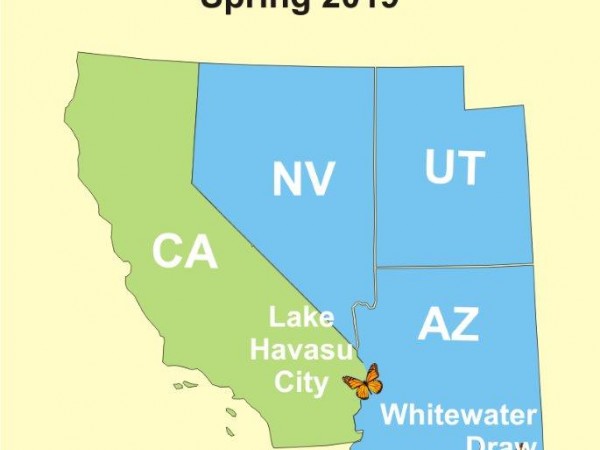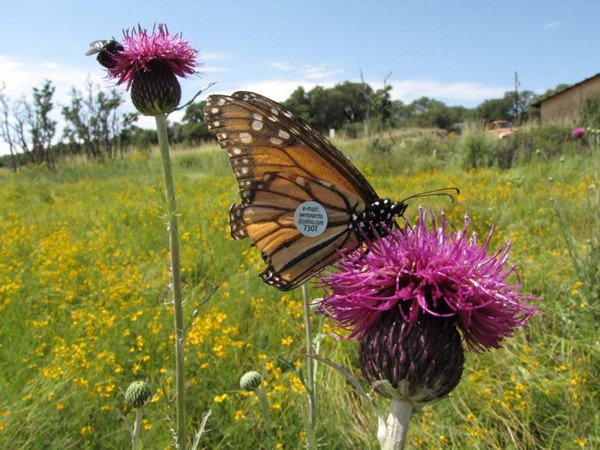Western Monarchs 2019 Spring Report#7
They're Here!
By Gail Morris
March 14, 2019
A Few Sightings Reported!
Last week there were only a few monarch sightings with the exception of reports in the desert regions of the California’s Coachella Valley and in the Arizona cities of Phoenix and Tucson. This week things are different. There is finally news of more monarch sightings!
Buck Dopp and his wife were visiting the new certified monarch butterfly watch waystation at Rotary Community Park in Lake Havasu, Arizona. For weeks, the Bucks have been walking and searching for monarchs. Finally, on Wednesday they found two!
This past Friday, Denise Gibbs was in for a surprise when she visited Whitewater Draw State Wildlife Area in southeast Arizona. Denise expected to see only migratory birds like Sandhill Cranes but she also observed monarchs. As Denise describes,
“Five minutes walking into the first observation platform, I saw two faded and worn monarchs! So excited! [They] were flying low; some spiraling interaction; one flew off; the female appeared to be searching for milkweed to oviposit on; she stopped briefly to nectar on a yellow mustard flower. [I also observed] painted ladies and pipevine swallowtails butterflies [which were] numerous.”
Many Questions
Where do you think the monarchs came from? Did the two monarchs seen in Lake Havasu fly in from California or Mexico? What about the two worn monarchs seen at Whitewater Draw State Wildlife Area in southeast Arizona – which is just north of the US – Mexico border? Are the monarchs returning to these sites after spending the winter in Mexico or along the California coast? As noted last week, the tag recovery research indicates that some monarchs migrate to Mexico. Could these migrants be returning to Arizona?
Please Report Your Sightings
Help us to find answers to these and other questions. Let’s keep following monarch population movements in the West. Please join Journey North and our partners who care deeply about the western monarch butterfly population to help track monarchs. Report your sightings on Journey North – sightings can include first adult monarchs, eggs, larvae, and first milkweed emergence.
Gail Morris is the Coordinator of the Southwest Monarch Study (www.swmonarchs.org), a Monarch Watch Conservation Specialist, and the Vice President of the Monarch Butterfly Fund and the Central Arizona Butterfly Association.The Western Monarch Population News is based on comments provided to Gail Morris. We hope to increase the number of sightings and therefore photos and comments entered into the Journey North. We rely on the volunteers who communicate regularly with Gail and who agree to participate in our effort to increase awareness of the population of western Monarchs.


